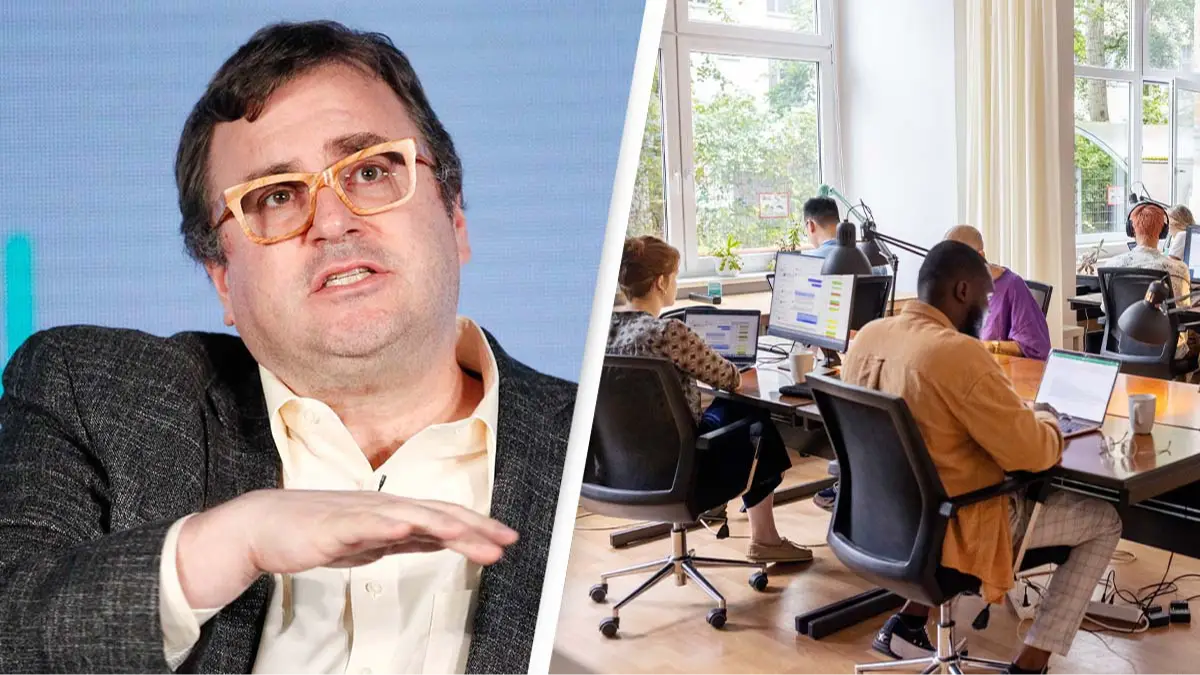
After decades of it being the status quo for workers around the world, the 9-to-5 workday could be coming to an end sooner than we think.
A large number of people currently work 9-to-5, or some version of an eight-hours-a-day, five-days-a-week schedule. However, some people believe that, with the world of both labor and technology continuing to evolve every year, that type of work model could cease to exist in the coming years.
Unfortunately, that doesn’t necessarily entail a less strenuous working schedule for the labor force.

Advert
Recently, it was LinkedIn Co-Founder Reid Hoffman who voiced his opinion on the ever-changing world of labor, predicting that the tried-and-true business model isn’t long for this world and could come to an end by 2034.
“The notion of working for one company your entire life is now extremely rare. It’s now the rare exception versus the common case,” Hoffman explained in a video that has recently gone viral on X (formerly Twitter).
Hoffman continued: “You may not do a lot of your work fully as an employee, you may actually be working in the gig economy where you may have two or three gigs.
“These are the directional changes from what we’ve seen in the workforce for the last few decades.”
The 'gig economy' often refers to workers who operate on a freelance basis for several companies or even industries at a time, something that provides a certain level of freedom to a worker but often comes at the expense of financial stability.
Hoffman’s prediction also accounts for artificial intelligence, commonly referred to as AI, which he thinks will play a major role in the eventual death of 9-to-5s.
“A lot of jobs are going to change their nature by how automation either takes the job completely or changes the way that people do jobs,” Hoffman added.

This proposed reality has been met with mixed reactions, as many fear that the stability 9-to-5 jobs oftentimes offer will completely vanish and leave people with a worsened quality of life as a result.
Others, however, believe the opportunity to 'be your own boss' far outweighs the lack of stability that would likely come to be if Hoffman’s predictions are correct.
However, other experts believe Hoffman’s predictions regarding the evolution of labor are far too broad.
“In general I see jobs around the world splitting into two parts, fixed-time jobs and flexible-time jobs,” Jay Zagorsky countered in a discussion with The National following Hoffman’s comments.
Zargorsky continued: “All of these jobs from cleaners to air traffic control workers all share the same common feature, when the shift is over, the person is done with work.
“These jobs are not going to disappear, no matter what the pronouncements from Silicon Valley entrepreneurs.”
Topics: Business, Social Media
